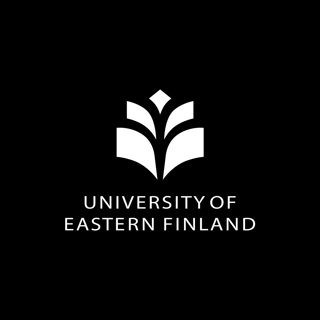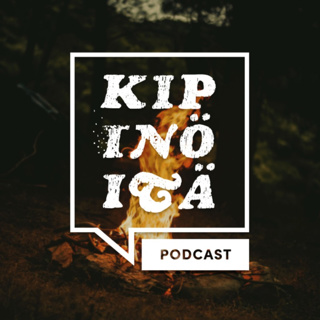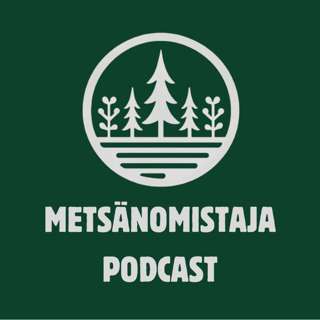
Spooky Science
It’s our Halloween special from a rain-soaked Jodrell Bank in Cheshire. We find out what you can see in a dark, dark Halloween night sky with space-watcher and Professor of astrophysics Tim O’Brien. Also this week, we meet some blood-sucking leeches, the horrors of pumpkin waste and could zombies ever be real? Presenter: Victoria Gill Producers: Ella Hubber, Sophie Ormiston & Gerry Holt Editor: Martin Smith Production Co-ordinator: Jana Bennett-Holesworth To discover more fascinating science content, head to bbc.co.uk search for BBC Inside Science and follow the links to The Open University.
28 Marras 202428min

Whatever happened to graphene?
Twenty years ago this week two physicists at the University of Manchester published a ground-breaking paper describing the extraordinary qualities of graphene. The thinnest and strongest material known to exist – and better at carrying electricity than any metal – its discovery was hailed as revolutionary. But two decades on, it doesn’t seem to have changed the world, or if it has, it is doing so very quietly. So, what happened? We go on the trail of graphene, meeting Nobel Prize winner and Godfather of Graphene Andrew Geim, and learning what it has – and hasn’t – done and what might be next... Also this week, how to kill an asteroid and we talk the “other” COP with chief scientific adviser to the government, Dame Angela McLean. Presenter: Victoria Gill Producers: Sophie Ormiston, Ella Hubber & Gerry Holt Editor: Martin Smith Production Co-ordinator: Jana Bennett-Holesworth BBC Inside Science is produced in partnership with the Open University.
21 Marras 202428min

Are our carbon sinks failing?
The Earth’s natural carbon sinks absorb half of our pollution. But now, they appear to be collapsing. Why is this happening – and will we be able to reach our climate goals without them?Also this week, why a psychologist won the Nobel Prize in Physics, the culprit behind the second biggest mass extinction event, and does playing video games make you smarter?Presenter: Marnie Chesterton Producers: Sophie Ormiston, Ella Hubber, Anna Charalambou Editor: Martin Smith Production Co-ordinator: Andrew Rhys Lewis BBC Inside Science is produced in collaboration with the Open University.
14 Marras 202428min

Should we bring back extinct animals?
A woolly mammoth by 2028.That’s the bold claim from US company Colossal Biosciences, who say research is under way that will make this possible.But even if we have the technology to bring back a long dead species, should we? We hear the arguments for and against de-extinction.Also this week, what will Europa Clipper find when it heads to one of Jupiter’s icy moons and how to win a Nobel Prize. Presenter: Marnie Chesterton Producers: Ella Hubber, Sophie Ormiston & Gerry Holt Editor: Martin Smith Production Co-ordinator: Andrew Rhys Lewis BBC Inside Science is produced in partnership with the Open University.
7 Marras 202428min

Could coal shut-down mark new era for energy?
“That’s the end of coal in the UK for electricity.” The UK’s last coal-fired power station has closed, ending Britain's 142-year reliance on coal. But what difference will the closure of Ratcliffe-on-Soar make – and could it mark a new dawn for clean energy? After 20 years of research into microplastics and headline upon headline on their potential harms, how much do we really know about these tiny particles? Also this week, Marnie turns lab rat for a navigation experiment, and why are we all so obsessed with Moo Deng? Presenter: Marnie Chesterton Producers: Sophie Ormiston, Ella Hubber & Gerry Holt Editor: Martin Smith Production Co-ordinator: Andrew Rhys Lewis BBC Inside Science is produced in partnership with the Open University. If you want to test your climate change knowledge, head to bbc.co.uk - search for BBC Inside Science and follow the links to the Open University.
31 Loka 202428min

How green is space travel?
The images beamed back to Earth of the first civilian spacewalk have prompted a very pertinent question from one Inside Science listener: What effect is space travel having on our climate? We're used to delving into the carbon footprint of Earth-bound travel – so this week we’re going to explore the impact of the rapidly growing space industry on our climate. How does a rocket launch compare to a flight taking off? Do we even know the true cost yet – and if it’s significant, what might the solution be? Also on the programme, a personal perspective from a remote island on worrying seabird declines, the results of a project to refreeze Arctic sea ice, and why new evidence unearthed about the Falkland Islands suggests it may once have looked very different... Presenter: Vic Gill Producers: Ella Hubber & Gerry Holt Editor: Martin Smith Production Co-ordinator: Andrew Rhys Lewis Studio Manager: Rhys Morris BBC Inside Science is produced in partnership with the Open University. If you want to test your climate change knowledge, head to bbc.co.uk - search for BBC Inside Science and follow the links to the Open University.
24 Loka 202428min

Is lab-grown meat the future of food?
Lab-grown meat, cultivated meat, cultured meat, in-vitro meat - whatever you call it, the industry claims it could be a game changer. Not just economically, but for feeding the planet in a sustainable way.But is it too good to be true? And will people even eat it? In this special episode of Inside Science, we take a deep-dive into lab-grown meat; visiting a production facility to see how it's made, hearing about the nuanced perspectives of British farmers, asking if this new industry can learn from the failings of GM foods, and trying to figure out what the true environmental costs of entirely new way of producing food really is. Presenter: Victoria Gill Producer: Ella Hubber Editor: Martin Smith Production Co-ordinator: Andrew Rhys Lewis
17 Loka 202427min

The first civilian spacewalk
Today incredible images were beamed around the world of civilians walking in space – for the very first time. All eyes were on businessman Jared Isaacman and engineer Sarah Gillis as they ventured outside a Space X capsule. But is this an historic space exploration milestone - or just a very exciting holiday for a billionaire? We'll find out more from the BBC’s own expert space-watcher Jonathan Amos. Also this week, we visit Sellafield which processes and stores more radioactive material per square metre than any other site in Europe. But it is getting full. So where is our nuclear waste going to go in future? As the UK searches for a new potential site, we look at the science of what we do with nuclear waste and why. We’ll also delve into the fascinating world of nuclear semiotics. How can we communicate the dangers of nuclear waste to people living 100,000 years from now? Presenter: Vic Gill Producers: Sophie Ormiston & Gerry Holt Editor: Martin Smith Studio manager: Cath McGhee Production Co-ordinator: Andrew Rhys Lewis
10 Loka 202428min





















